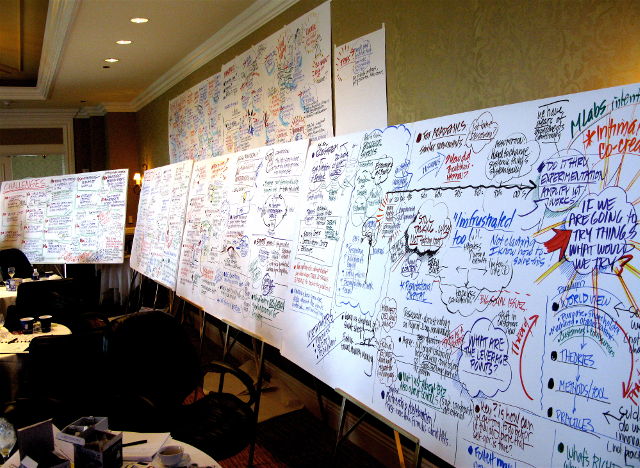
Really, How Informed is our Decision Making?
Opinions are a form of judgment that require people to perform a decision-making process. In reality, these decisions are often supported by the thinnest levels of credible information and rational thought. Formation of these ideas is based loosely on questionable facts and flashy headlines. We can see evidence of this from the world of high politics to the simplest of daily conversations.
Decision-making is highly influenced by people’s internal scripts, biases, and cognitive maps and frames that allow for mental shortcuts in information processing. These shortcuts of our marvelous minds are wonders to behold and do their best to keep us moving forward with our lives. However, I am not convinced they are capable of maintaining the pace with the increasing onslaught of information.
Recently, I had my opinions about several political and social topics challenged. I took the time to explore my thoughts and do some research. Looking into each of these issues took about an hour, and I limited myself to primary news sources, academic research, and speaking with people who had first-hand experience. No matter how people try to avoid it, everything has a bias one way or another. We are all human, and some skepticism in what information we consume is healthy.
What was my result? Many of my positions were ill-informed and based largely on drive-by exposures to mass media. I was a little shocked at how I formed many opinions through exposures to the headlines and 30-second media blurbs.
When my information changes, I alter my conclusions. What do you do, sir?
–John Maynard Keynes
Am I so different than everyone else? I started an active inquiry about topics when I found myself in casual conversations with friends and associates. I must say, my opinion formation experience is not uncommon. I am no different from these other educated and successful people who are in my life. We are in a wash of information, so we deal with it as best our minds can through the use of mental information processing shortcuts. We cannot be “informed” about a majority of topics because of limitations of time and mindshare. However, we need to be aware that others with knowledge on specific topics will use drive-by information tactics to sway public opinion.
We need to be cautious of our thoughts and ideas as they may not be as well informed as we think. Advertisers know how to move ideas through a population segment. In fact, we send people to school to learn these skills. I am not a black hat conspiracy theorist. This is not subversion, but effective use of marketing driven by various specific, and often competing, agendas.
A better practice that I try to follow:
I realize that I cannot be informed on all issues, so I stopped trying. When having a conversation with someone about a subject which I have not thought about deeply, I will share my current thinking, but let the person know they are my superficial thoughts. This feels like blood in the water with a shark circling. Watch how they will move to sway or reinforce your thinking about the topic.
When the topic is of particular significance to me, my family, business, or community, I do my research. Every information source has an agenda, so I expect it. I look for reputable sources that are fact based and not primarily opinions or interpretations. I try to spend an hour or two to develop a baseline understanding of the arguments. Warning: personal biases will quickly come into play – watch for confirmation bias in the information source selections!
I do my best to question my bias and rational. I want to understand what were the motivators and influences of my initial position.
After researching and thinking about it, I will wait a few days before making a decision or opinion formation. I review my notes and thoughts before making a newly informed decision. I do not always change my starting opinion about a topic or issue. As often as not, my starting place remains the same, but I am better informed on the issue.
This is not the end. I do my best to stay up on the subject and look information that may cause me to reevaluate the position. I consider the ability to change my mind as an attribute of strength and not indecisiveness.
Always, remember that John Maynard Keynes quote!